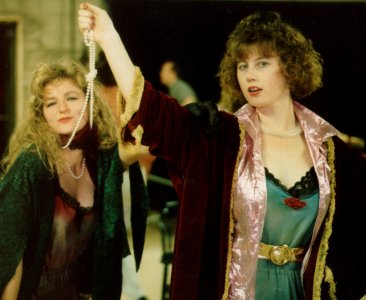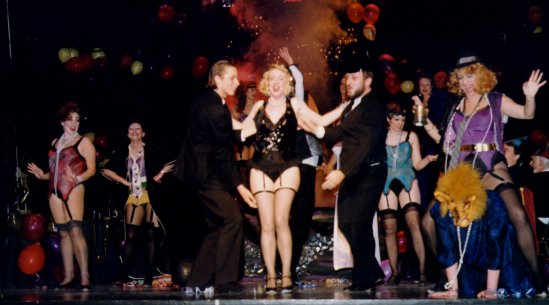Arthur Miller on Lee Strasberg.
While filming “The River of No Return”, director Otto Preminger apparently grew quite exasperated with Marilyn Monroe because every time he gave her direction she would go to her private “coach”, Natasha Lytess, and take direction from her. Lytess bizarrely coached Monroe to enunciate every syllable cleanly and counteracted Preminger’s desire for a more fluid, compelling performance. Preminger should have fired Monroe on the spot but it was the nature of Hollywood then– and now– that big stars command deference, because audiences are stupid and choose their entertainment based on how much they care about the celebrity actors than the writer or director. That’s why so many small-scale independent films are so much better than major Hollywood productions, especially the ones that feature older celebrities playing characters who should be ten, twenty, or even thirty years younger.
Lytess could never have written a screenplay if her life depended on it– she was a parasite, sucking the blood out of the real artists, and Monroe was a repugnant diva more obsessed with her own image and fame than with artistic achievement though she would frame her narcissism as “artistry”.
Anyway, this is an excellent dissection of the Strasberg school of acting:
The following was posted on Facebook 2024-07-09.
I think [Lee] Strasberg is a symptom, really. He’s a great force, and (in my unique opinion, evidently) a force which is not for the good in the theater. He makes actors secret people and he makes acting secret, and it’s the most communicative art known to man; I mean that’s what the actor’s supposed to be doing. …But the Method is in the air: the actor is defending himself from the Philistine, vulgar public. I had a girl in my play I couldn’t hear, and the acoustics in that little theater we were using were simply magnificent. I said to her, ‘I can’t hear you,’ and I kept on saying, ‘I can’t hear you.’ She finally got furious and said to me, in effect, that she was acting the truth, and that she was not going to prostitute herself to the audience. That was the living end! It reminded me of Walter Hampden’s comment–because we had a similar problem in ‘The Crucible’ with some actors–he said they play a cello with the most perfect bowing and the fingering is magnificent but there are no strings on the instrument. The problem is that the actor is now working out his private fate through his role, and the idea of communicating the meaning of the play is the last thing that occurs to him. In the Actors Studio, despite denials, the actor is told that the text is really the framework for his emotions; I’ve heard actors change the order of lines in my work and tell me that the lines are only, so to speak, the libretto for the music–that the actor is the main force that the audience is watching and that the playwright is his servant. They are told that the analysis of the text, and the rhythm of the text, the verbal texture, is of no importance whatever. This is Method, as they are teaching it, which is, of course, a perversion of it, if you go back to the beginning. But there was always a tendency in that direction. Chekhov, himself, said that Stanislavsky had perverted ‘The Seagull.'”
Arthur Miller Interview with Olga Carlisle and Rose Styron
The Paris Review, 1966


